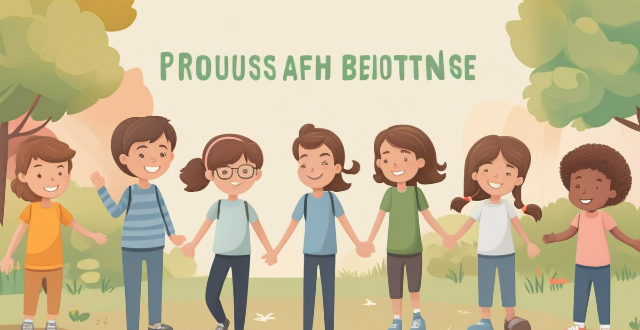The provided text discusses the impact of air pollution, exacerbated by climate change, on children's health. It outlines both immediate and long-term health effects, including respiratory issues, developmental concerns, chronic conditions, and potential for other health problems. The text also highlights the socio-economic impact of these health issues, such as school performance and healthcare costs. Prevention and mitigation strategies are suggested, including reducing pollution sources, promoting clean energy, awareness and education, and urban planning. The conclusion emphasizes the need for collective action to protect children's health and future.

How Does Air Pollution Caused by Climate Change Affect Children?
Introduction
Air pollution, exacerbated by climate change, poses significant health risks to children. This is a multifaceted issue with both immediate and long-term implications for the well-being of young individuals.
Immediate Health Impacts
Respiratory Issues
- Asthma: Increased air pollution can trigger asthma attacks in children, leading to hospitalizations and emergency room visits.
- Bronchitis and Pneumonia: Young lungs are vulnerable to irritants and pollutants, which can cause inflammation and infection.
Developmental Concerns
- Neurodevelopmental Impairment: Exposure to pollutants can affect cognitive development, resulting in reduced IQ and learning disabilities.
- Physical Growth: Pollution can stunt growth in children, affecting their overall development.
Long-Term Health Effects
Chronic Conditions
- Cardiovascular Disease: Early exposure to pollutants can lead to heart disease later in life.
- Respiratory Diseases: Persistent exposure can result in chronic obstructive pulmonary disease (COPD) and other respiratory illnesses.
Potential for Other Health Problems
- Obesity: Some studies suggest a link between air pollution and childhood obesity.
- Diabetes: Increased rates of type 2 diabetes have been associated with high levels of pollution.
Socio-Economic Impact
- School Performance: Children suffering from pollution-related health issues may have lower attendance and performance in school.
- Healthcare Costs: The burden of treating pollution-related illnesses can be financially straining for families and the healthcare system.
Prevention and Mitigation Strategies
- Reduce Pollution Sources: Encourage the use of public transportation, bike lanes, and pedestrian-friendly areas to decrease vehicular emissions.
- Promote Clean Energy: Advocate for renewable energy sources to reduce reliance on fossil fuels.
- Awareness and Education: Educate communities about the health effects of pollution and how to minimize exposure.
- Urban Planning: Implement green spaces and plant more trees to help absorb pollutants.
Conclusion
The impact of air pollution on children's health is profound and far-reaching. It requires collective action from governments, industries, and communities to protect the youngest members of our society. By addressing climate change and its related pollution, we can safeguard the health and future of generations to come.